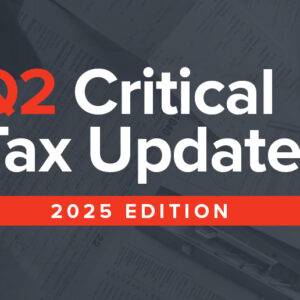WESTERN CPE BLOG
Providing the latest tax news, information, and updates for tax and finance professionals
CMA vs MBA: A Guide to Career Paths for Accountants
Deciding between a CMA (Certified Management Accountant) and an MBA (Master of Business Administration) is a common conundrum for accounting and finance professionals. Both the CMA credential and the MBA degree offer promising career prospects in the business administration and financial management sectors. This guide aims to decode these academic and professional paths, from the CMA exam to MBA programs, to help you align your education with your desired career path.

What is CMA?
The Certified Management Accountant (CMA) is a globally recognized certification that focuses on management accounting and financial management. To earn the CMA certification, candidates must pass the CMA exam, which is administered by the Institute of Management Accountants (IMA). The Powers CMA Exam Academy is one such premier institute that offers live interactive online classes to prepare for the CMA exams.
Prerequisites
-
Undergraduate Degree: A bachelor’s degree is required to sit for the CMA exam.
-
Professional Experience: Two continuous years in a role involving management accounting or financial management.
Cost
The US CMA course fee varies but generally includes the IMA membership, exam fees, and study materials.
CMA Salary and Career Prospects
The average salary of management accountants with the CMA designation is generally higher than those without it. Roles include financial analyst, finance manager, and higher-level financial C-suite roles.
What is MBA?
An MBA is an academic degree offered by business schools that provides comprehensive training in business administration. MBA candidates must typically pass the Graduate Management Admission Test (GMAT) for admission into accredited universities.
Prerequisites
- Undergraduate Degree: A bachelor’s degree from an accredited university is essential.
Cost
MBA programs often come with ever-rising tuition rates, making them a substantial investment of both time and personal resources.
MBA Salary and Career Prospects
MBA graduates frequently secure managerial positions in accounting and finance departments and are considered for roles like management consultant and financial analyst.
CMA vs MBA: Career Paths
Specialization
-
CMA focuses on management accounting and financial planning.
-
MBA provides a broader view of business administration, including marketing, operations, and strategy.
Flexibility
-
CMA Course: The certification process allows students to study at their own pace, making it ideal for those working full-time.
-
MBA Program: Generally requires a full-time commitment but offers a broader range of career options.
Recognition
Both the CMA and MBA are internationally recognized qualifications, but the MBA holds a slight edge in the international job market due to its longer history.
Ethical Component
CMA candidates are trained extensively in professional ethics, an increasingly crucial aspect in today’s businesses.

Making Your Choice: CMA vs MBA
Your decision between CMA and MBA should be based on several factors:
-
Career Goals: If your focus is strictly on roles within financial management and management accounting field, a CMA may be more suitable.
-
Time and Resources: An MBA is a significant investment, while the CMA can be completed at a fraction of the cost and time.
-
Career Success: Both the CMA credential and an MBA degree can open doors, but your career success as a CMA or MBA professional depends on your skill set, experience, and network.
Final Thoughts
Choosing between CMA and MBA is a critical decision that can significantly impact your career path. Whether you are finishing your undergraduate degree or looking to move up the corporate ladder, carefully consider your options. Companies often recruit students from both paths, so you’re not necessarily closing doors by choosing one over the other. Instead, think of it as aligning your educational and professional pursuits with your long-term career aspirations.
-
Self-Study
Ethics for California
$116.00 – $136.00 Select options This product has multiple variants. The options may be chosen on the product page -
Webcast
Q2 Critical Tax Updates
$98.00Original price was: $98.00.$49.00Current price is: $49.00. Add to cart -
Self-Study
Individual Income Tax Credits & Due Diligence Requirements
$145.00 – $175.00 Select options This product has multiple variants. The options may be chosen on the product page -
Self-Study
Become an Expert on Lookup Functions
$58.00 – $78.00 Select options This product has multiple variants. The options may be chosen on the product page -
Self-Study
Accountant Ethics for Delaware
$116.00 – $136.00 Select options This product has multiple variants. The options may be chosen on the product page -
Self-Study
Error-Proofing Excel Spreadsheets
$145.00 – $175.00 Select options This product has multiple variants. The options may be chosen on the product page







